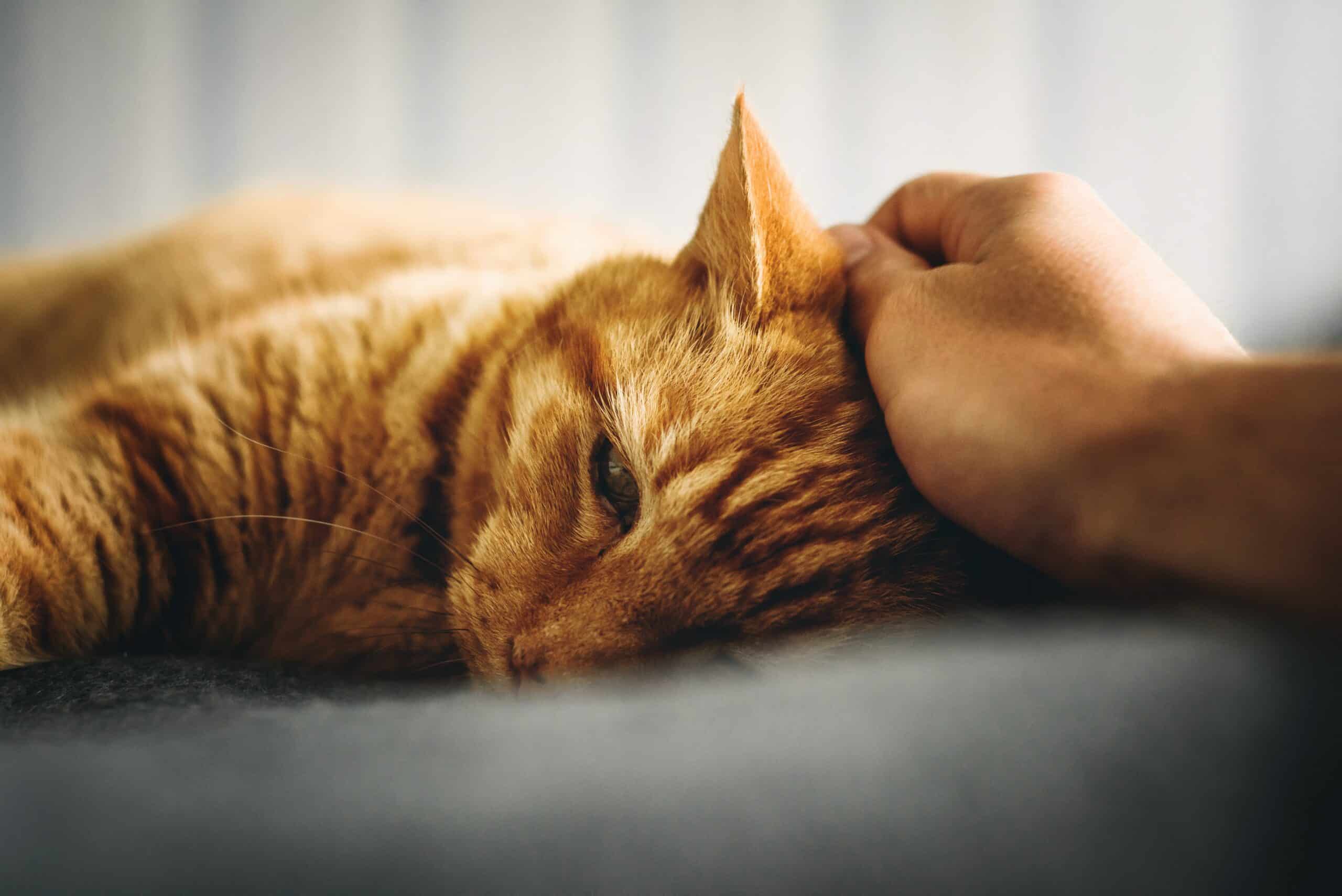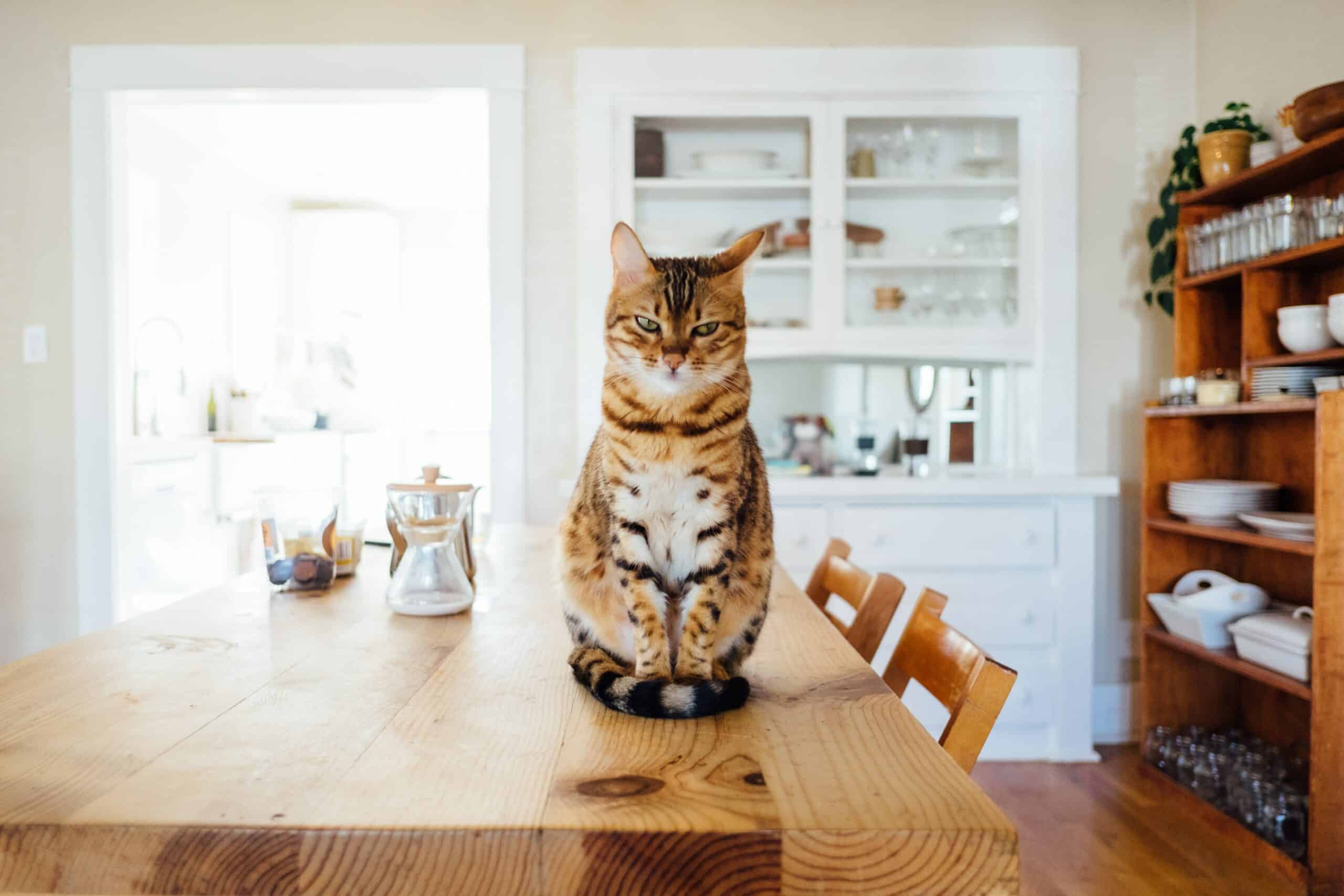It’s surprisingly common for cats to start acting differently when you’re pregnant. One of my cats used to lay on my belly long before I had a baby bump. Sometimes, they would all stay right beside me. It definitely gives the impression that cats can sense pregnancy.
Your Cat’s Behavior During Pregnancy Explained
Before you even take a pregnancy test, your furry friend might start showing clingy behavior. While it might seem like cats simply have psychic behavior, there are quite a few reasons behind the way that they are acting when you’re pregnant.
Feline Friends Pick Up On Behavioral Patterns
Not only does your furry companion pick up on your behavioral patterns and energies, but they also notice when there are sudden changes. If you’re feeling anxious because you’re worried that you might be pregnant, your cat will notice.
They’ll also notice schedule changes, such as you being home because you had a doctor’s appointment. Behavior changes will always be noticed, such as other people taking care of you more.
You’re Not Cleaning The Litterbox Anymore
Cat’s observe everything, and they tend to partial towards their primary caretaker. If that is you, and you were the one to clean the litterbox, they are bound to wonder what’s going on when someone else steps in to do the job.
Cat’s Appreciate Your Warmth
Cat’s, by nature, are warmer than humans. Because of this, they appreciate it when a person is warmer because their body temperatures are closer.
When a woman gets pregnant, the increased blood flow throughout her body and specifically to her stomach increases her body temperature. It’s a small amount so we might not instantly notice it. However, cats will notice this change long before we do.
View in gallery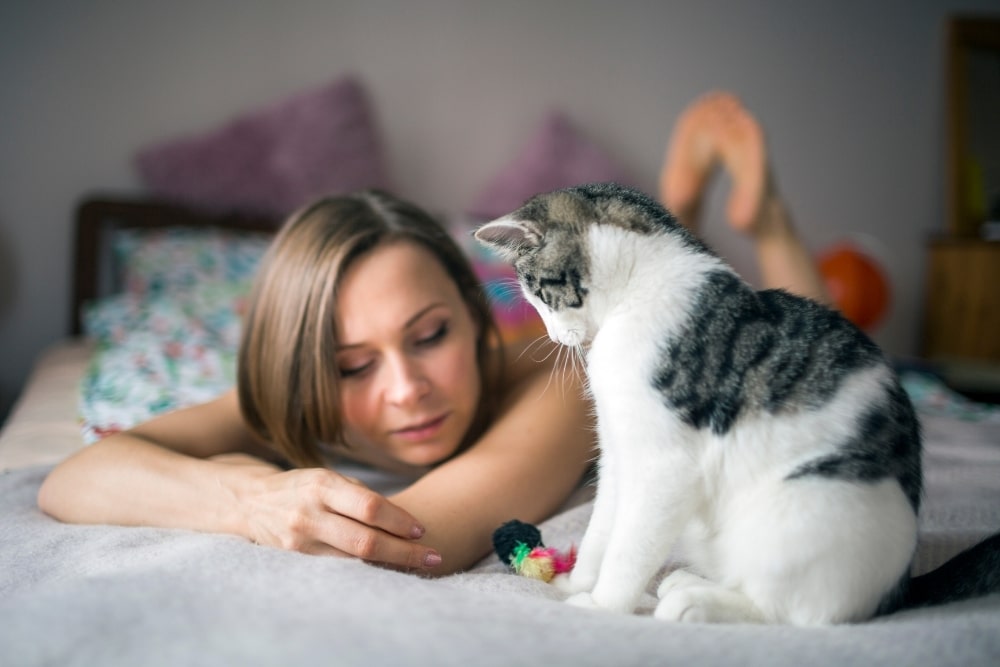
Cat’s Have An Enhanced Sense Of Smell
When you first become pregnant, your body begins to produce more of a hormone called progesterone, HCG, and estrogen. This winds up affecting the way that you smell. It doesn’t mean that you smell bad. Instead, it’s just different.
Whether cats are aware that this means you are pregnant or not remains unknown. They definitely notice the change though. This could be why cats can detect your pregnancy before you do.
How Your Cat May React As Pregnancy Progresses
As your belly gets larger, and behavioral changes in both yourself and your cat continue, you might notice different behaviors in your cat. Some cats are going to be concerned.
When your cat or kitten is concerned or worried about you, they’ll become more clingy. For example, our cat gets clingy when my son, his primary caretaker, is gone at his dad’s house all weekend. She follows me everywhere until he comes back.
You may also notice that your cat is acting aggressively. This is common in cats that are mad or irritated. Your cat might not be concerned about your behavioral changes.
Instead, they may be genuinely angry that you’re not the one cleaning their litter box anymore. This is also a common reaction to changes in the house, such as when you set up the nursery or move their things.
Peeing in random places is another way that cats show you they aren’t happy. If your feline is properly litter box trained and suddenly starts urinating all over the place, they are angry about the changes. Although this is a bit passive-aggressive, the feeling is the same.
View in gallery
Being protective can be expected if your cat is worried about you. They might not want you to be around other people. This could involve acting aggressively towards your partner.
They might also swat at anyone that comes near you or try to sit between you and another person. This is normal and will fade away as things go back to normal.
How To Deal With Behavioral Changes In Cats During Pregnancy
While it’s important to understand why cats are acting a certain way, it’s also important to improve their behavior. You don’t want your cat attacking every person that comes near you or urinating all over the place. It’s important to address these behavioral issues before the baby arrives.
Maintain A Consistent Routine
If your cat got used to you taking care of them, do as much as you can. Take them to vet appointments. Feed and water them. Leave the litter box for someone else, but do the rest yourself if you can.
Provide Plenty Of Attention
Cats don’t like change. It interferes with the stability that is in the household. Giving them plenty of extra cuddle time will help them calm down.
Small Changes At A Time
While your cat is going to have to deal with a lot of changes, try to make small changes so that it’s easier for cats with behavioral problems to adjust. For example, instead of preparing the entire nursery in one weekend, do the project in stages.
Paint the walls one day. Bring a crib into the room and put it together another day. This takes longer, but it can help you help your cat adjust to all of the household changes.
View in gallery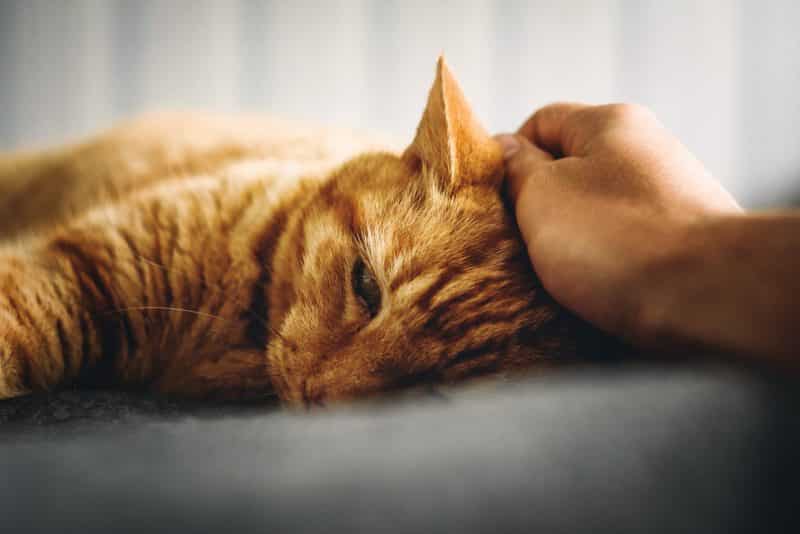
How To Prepare Your Cat For The New Baby
When you consider the way that your cat is acting due to changes before the baby arrives, you can’t help but dread bringing the new baby home. However, there are quite a few things that you can do before the baby gets home to make the transition easier on the entire household.
Play YouTube Videos Of Babies Crying
The mere sound of an infant crying can instantly give cat anxiety. I wish I had known this before the grandbaby came home. Every time he would cry, the cat would try to attack him. It was the sound.
So, we separated the two until our cat got used to the noise. I played YouTube videos like this one until she didn’t seem anxious and her little heart didn’t race when she heard the noise.
Cat-Proof The Crib
Your cat will love your little one’s crib. Accept it and come up with a plan to keep the cat out before the baby comes home. You can train them to stay out of it by covering it in aluminum foil.
Another great idea is to put sticky tape around the crib. Cat’s despise both sticky tape and aluminum foil, so these are good ways to deter them from sleeping in or around the baby’s things. When you do it before the baby comes home, they won’t get mad at the baby for it.
Put Down Pepper Where They Are Peeing
If your cat has started peeing in a specific area or on a particular thing, sprinkle pepper where they are going to the bathroom. Cats smell the area before going to the bathroom, and they won’t like smelling the pepper. It might make them sneeze, but it won’t hurt them.
Bring Home Something From The Hospital First
If you’re still at the hospital, consider having your partner or a trusted family member bring home something of the babies.
You want the cat to have positive associations with the baby, and this can help with that. They will recognize the smell of the new baby when you bring them home.
Close Off The Nursery
If you have the room, consider putting the baby in a separate bedroom with a door. When the baby comes home and is in your room, make sure the door is closed.
You don’t want the cat and baby alone together at first, especially if the cat was previously displaying aggressive behavior.
View in gallery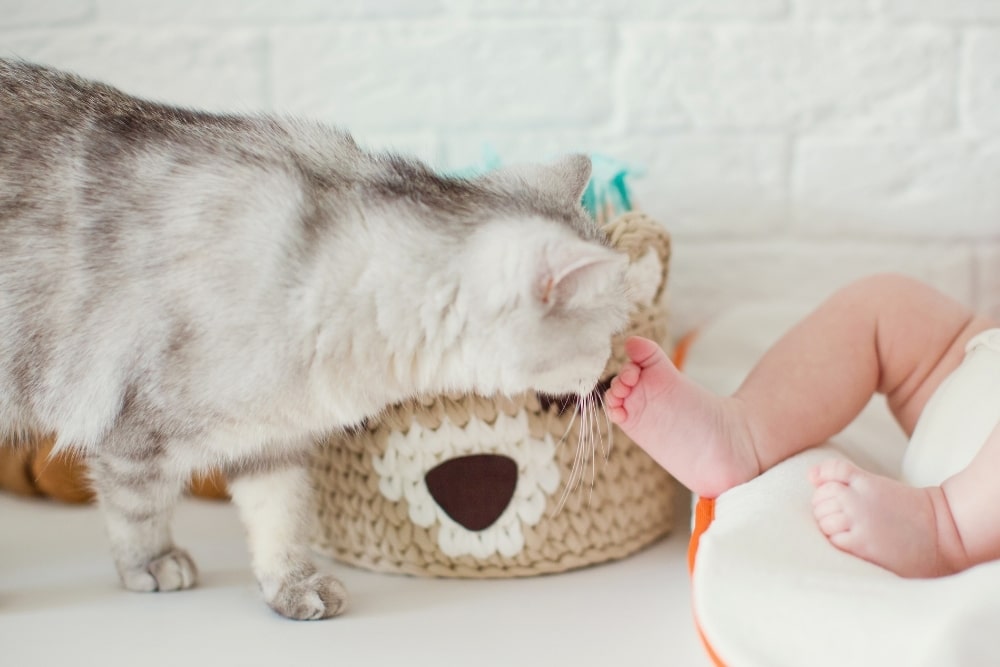
Carefully Introduce The Two Of Them
Do not simply bring a new baby home and let the cat warm up to the baby on its own. Instead, leave the baby in their car seat when bringing the baby home. Then, go get the cat.
Let the cat be around the baby and smell him or her. They might not like each other at first, and cats are known for being territorial. This makes it critical that you stay with the two until they are older to prevent injuries.
Make Sure You Give Plenty Of Attention To Your Cat
When the grandbaby first came home, our cat was not born yet. She was born the next day. Because of that, they began to grow up together. However, since they both spent the better part of four months on my lap, they tend to compete for my attention.
If I pay attention to the baby and not the cat, the cat will start peeing on the baby’s things and try to scratch the baby. Paying plenty of attention to both can help keep the jealous behavior to a minimum.
In Conclusion
Your cat more than likely can’t sense that you’re pregnant. They might not know what human pregnancy is. However, they do pick up on new smells, and your behavior changes. This can make them act differently as soon as you are pregnant, even if you haven’t taken a pregnancy test yet.
